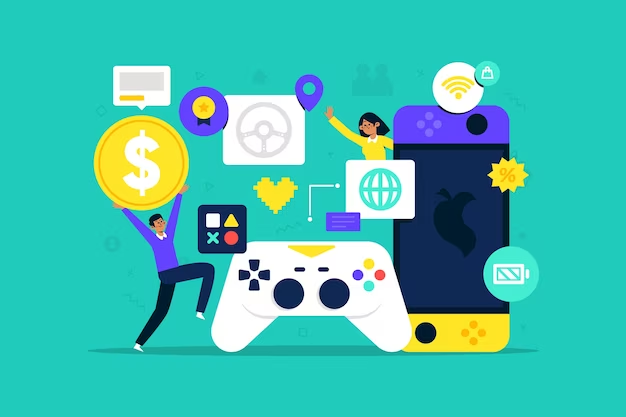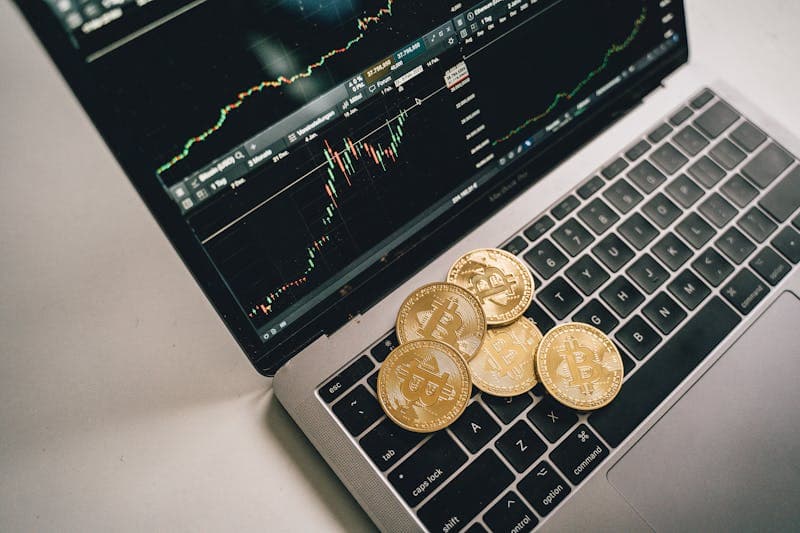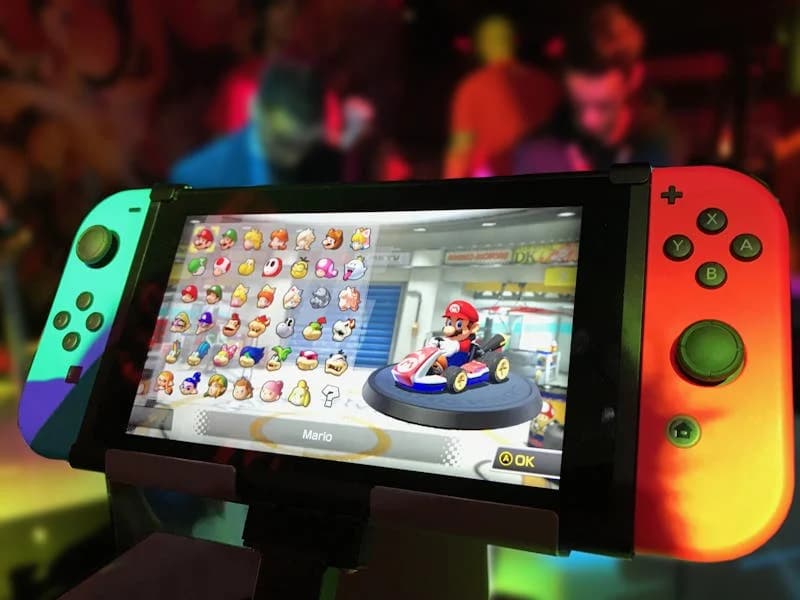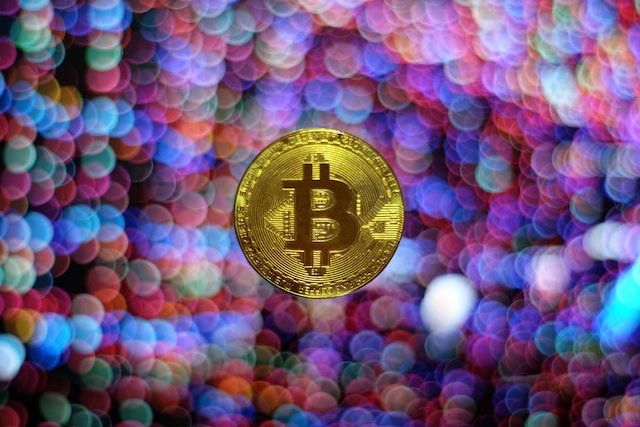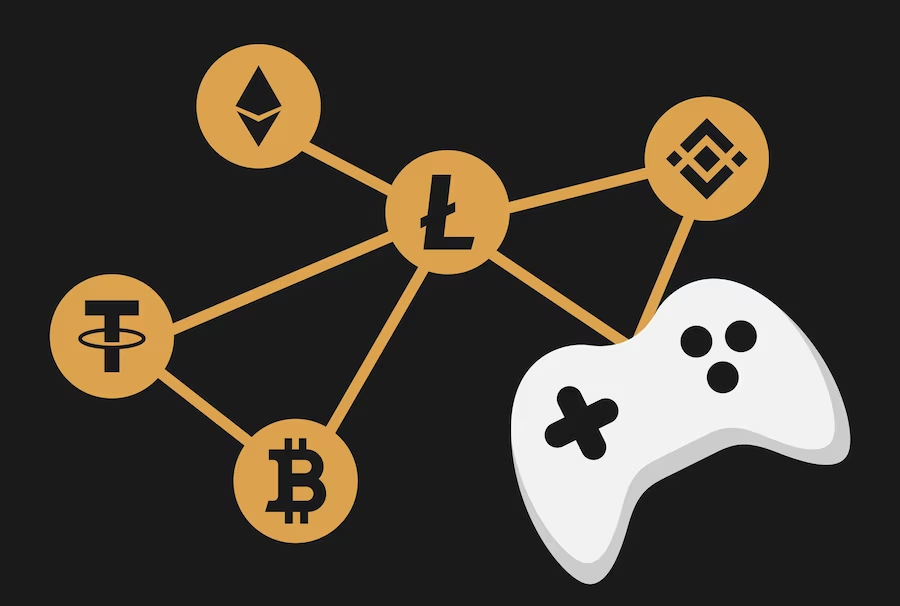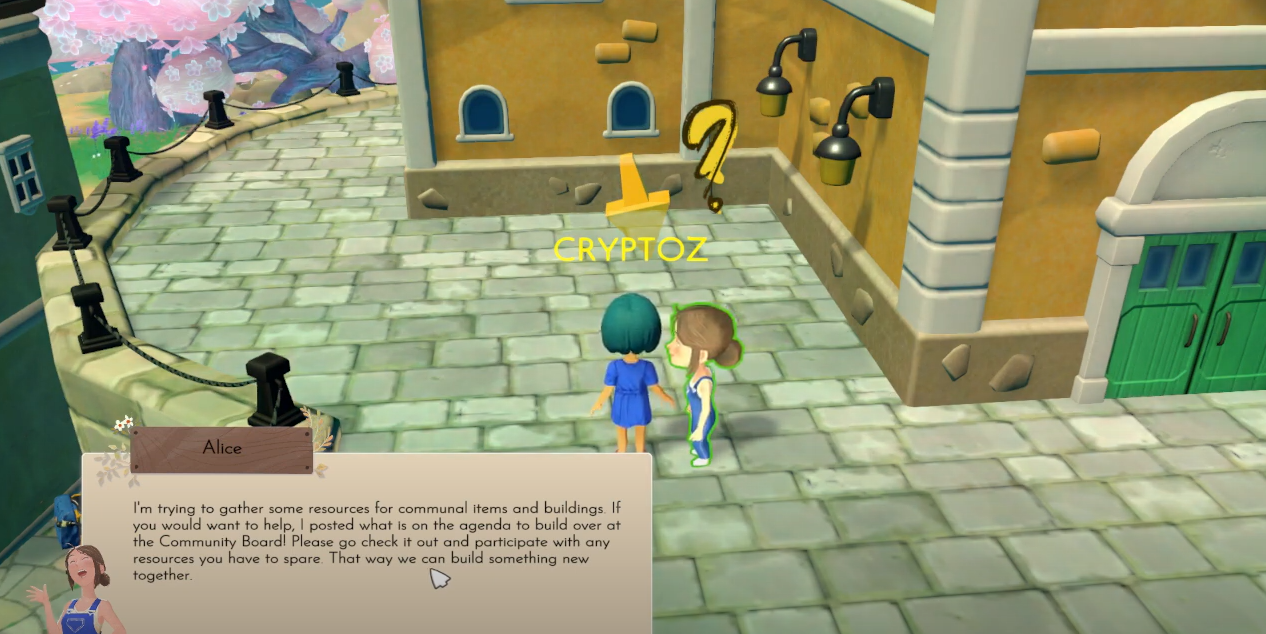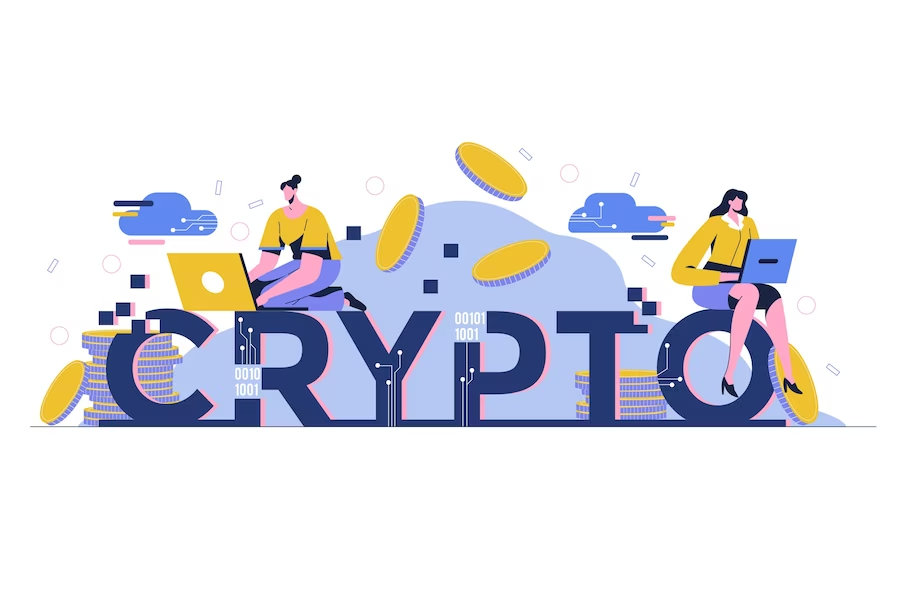Welcome to the era of bitcoin and blockchain technology, where numerous sectors such as banking, supply chains, classrooms, and hospitals have experienced a revolutionary shift. Amidst these fields, the gaming industry has emerged as a thrilling frontier, embracing this transformative technology in innovative ways. In this article, we will explore the captivating realm of free crypto games, uncovering their mechanics, advantages, and drawbacks. Furthermore, we will take a comprehensive look at some highly acclaimed books that delve into this intriguing domain. Prepare to embark on a journey into the gaming world, where virtual currency takes center stage.
Understanding Free Crypto Games
Embark on an exhilarating adventure in the realm of ‘play-to-earn’ games, also referred to as free crypto games. Immerse yourself in the thrill of gaming while simultaneously earning valuable cryptocurrency rewards. These revolutionary gaming platforms offer a decentralized gaming experience that guarantees utmost security and transparency, all thanks to the power of blockchain technology. Brace yourself for an extraordinary journey that promises to revolutionize the landscape of online entertainment as we know it.
The following are central features of these games:
Blockchain-based
The use of blockchain technology in gaming mechanics has many benefits, such as increased security, transparency, and decentralization. This method introduces decentralized mechanisms that give users and creators equal agency, and it is transforming the gaming industry as a result. In this in-depth analysis, we’ll delve into the salient characteristics and advantages of games that run on the blockchain.
- Security: By utilizing the cryptographic capabilities of blockchain technology, blockchain-based games offer a high level of safety. Because the blockchain records every transaction, games are secure against hacking and fraud. Since blockchain is distributed, it eliminates a single point of failure that may be used by cheaters to alter the outcome of the game.
- Transparency: Games built on the blockchain must adhere to strict rules of transparency. The blockchain acts as a permanent and immutable record of all transactions, including those involving in-game items and ownership changes. Because of this openness, gamers can check the realness and scarcity of in-game items and so prevent their duplication or forgery. The blockchain can also be used to establish the game’s rules and mechanics, guaranteeing that everyone plays by the same set of guidelines.
- Independence from a Central Authority: Games built on the blockchain are played in a decentralized fashion, as opposed to the centralized games of the past. Smart contracts, which are self-executing agreements stored on the blockchain, regulate the game’s rules and dynamics. Without a referee or other neutral party, the terms of these smart contracts can be reliably enforced. The game’s rules cannot be changed at will by the developers, and players retain complete ownership of their assets.
Let’s look at a table outlining a comparison between conventional games and blockchain-based games to better explain the advantages of the latter:
| Features | Traditional Games | Blockchain-Based Games |
|---|---|---|
| Security | Centralized, susceptible to hacking | Decentralized, tamper-proof |
| Transparency | Limited visibility | Full visibility and auditability |
| Independence | Controlled by central authority | Governed by smart contracts |
| Ownership of Assets | Limited ownership and control | True ownership and transferability |
| In-game Transactions | Controlled by game publisher | Peer-to-peer transactions on the blockchain |
Games built on the blockchain provide a new standard in the gaming business, with the added benefits of increased security, transparency, and decentralization. These games give players a voice, encourage a level playing field, and give them legitimate title to their virtual possessions. Blockchain-based games open the door to new and fascinating forms of entertainment because of their decentralized nature.
Cryptocurrency earnings
Digital currencies are a sort of in-game currency that can be earned by playing blockchain-based games. These digital currencies can be earned in a number of ways, such as through successful combat, the sale of in-game products, or general participation in the game. Let’s delve deeper into the various cryptocurrency income streams available to participants.
- Winning Battles: Players of several blockchain-based games can win cryptocurrency by competing in and winning various types of battles and other tournaments. Players compete against one another in a variety of game styles, and skill and strategy are often essential components of such games. Players are paid in cryptocurrencies for their efforts and talent if they are victorious in these fights.
- Selling In-Game Items: As digital assets, in-game objects can be owned and traded by players in many blockchain-based games. Anything from guns and armour to valuable collectibles and digital properties can fall into this category. Trading these things with other players in-game allows you to earn bitcoin. It all comes down to how rare something is, how much demand there is for it, and how important it is to the game’s economy.
- Participating in Activities: Many missions and other features in blockchain-based games allow players to earn cryptocurrency. Some examples of these actions are accomplishing in-game challenges, figuring out in-game riddles, and exploring in-game worlds. Players are encouraged to take a more active role in the game’s content since they can earn cryptocurrency for doing so.
Let’s make a table to summarize the many strategies for acquiring cryptocurrency in blockchain-based games:
| Description | Description |
|---|---|
| Winning Battles | Successfully completing challenges and/or battles will reward you with cryptocurrency. |
| Selling In-Game Items | Gain cryptocurrency by exchanging or selling high-quality things within the game. |
| Participating in Activities | Earn cryptocurrency by completing quests, challenges, or exploring new areas. |
It’s worth noting that the type of cryptocurrency gained from playing these games can change based on how the game is built. While some may offer players the chance to earn well-known cryptocurrencies like Bitcoin or Ethereum, some games may even have their own in-game currency.
Players of blockchain-based games have the chance to earn cryptocurrency by completing in-game tasks. Players can earn virtual currencies with real-world worth in a variety of ways, including through completing missions, completing battles, and selling in-game stuff. Because of the possibility of gaining real-world rewards, gamers are more invested and motivated to play.
NFTs
Many blockchain-based games rely heavily on non-fungible tokens (NFTs). Newfound Treasures (NFTs) are one-of-a-kind digital items that can be owned and traded both inside and outside of the game. They have changed the way we think about digital property by making it possible to prove the originality, scarcity, and ownership of digital assets. Let’s go deeper into NFTs and how they affect blockchain games.
- Unique Digital Assets: In-game NFTs are analogous to rare or exclusive digital items. NFTs are separate and have their own properties, in contrast to cryptocurrencies like Bitcoin and Ethereum, which are interchangeable and have the same value. In-game currency, virtual real estate, artwork, music, and any other form of digital content can all be tokenized and fall under this category.
- Ownership and Authenticity: Blockchain technology is used in NFTs so that ownership and validity can be independently verified. Each NFT has a unique digital identifier that is stored in the blockchain, making it impossible to copy or fake. Players can feel secure in the ownership and origin of their NFTs thanks to blockchain’s decentralized and transparent nature.
- Trading and Marketplace: Players of blockchain-based games can now exchange their NFTs for other items in-game. These one-of-a-kind items can be traded, bought, and sold amongst gamers to foster a thriving economy of virtual commodity exchange. Players are able to find, appraise, and purchase unique NFTs in the marketplace, increasing the depth and richness of their gaming experience.
Let’s make a table highlighting the main characteristics of NFTs to demonstrate their significance in blockchain-based games:
| Features | Description |
|---|---|
| Unique Digital Assets | NFTs represent one-of-a-kind digital items within the game. |
| Ownership and Authenticity | NFTs utilize blockchain to establish verifiable ownership and authenticity. |
| Trading and Marketplace | Players can buy, sell, or exchange NFTs within the game’s marketplace. |
The introduction of NFTs into blockchain-based gaming has opened up new possibilities for the industry as a whole. It allows programmers to make virtual objects with real-world worth, artists to earn money from their work, and players to acquire and exchange such items.
In addition, NFTs have widened the scope of possible interoperability between games. Players’ NFTs may be transferable between blockchain-based games, expanding the scope and potential uses of these digital assets.
When it comes to blockchain-based video games, NFTs are now a major factor. They improve the virtual game experience by adding a sense of ownership, authenticity, and tradability. In a decentralized and open environment, NFTs allow users to take pride in and show off their digital possessions. When NFTs are incorporated into blockchain-based games, a new and exciting gaming ecology can be created, one in which virtual ownership has real worth.
Examining the Benefits and Drawbacks
There are benefits and drawbacks to playing free crypto games online.
| Benefits | Drawbacks | |
|---|---|---|
| 1 | Monetary incentives: The primary benefit of these games is the opportunity to acquire cryptocurrency, which has real-world worth. | Complexity: For those unfamiliar with blockchain, NFTs, and bitcoin, there may be a significant learning curve. |
| 2 | Ownership: NFTs allow users to acquire and then resell rare items within a game. | Volatility: Earned cryptocurrency value volatility adds uncertainty to the equation. |
| 3 | Transparency: The distributed ledger technology known as blockchain makes financial dealings open and safe. | Scams: Just like any new industry, the video gaming industry is not immune to fraud and shady service providers. |
Spotlight on Free Crypto Games
Axie Infinity, Splinterlands, and Alien Worlds are just three of the many crypto games now available, yet they have garnered a disproportionate amount of attention. In this piece, we examine these games in greater detail, talking about their individual qualities, game mechanics, and player income potential.
Axie Infinity
Inspired by the success of Pokemon, Axie Infinity has made a spectacular debut in the world of cryptocurrency video games. Charming ‘Axies’ are digital creatures that players may raise, train, and fight in this entrancing world. The Smooth Love Potion (SLP) is an ERC-20 token that players may earn via fighting and then sell on various cryptocurrency exchanges.
| Pros | Cons |
|---|---|
| Engaging gameplay | High initial investment |
| Strong community | Complex game mechanics |
| Significant earning potential |
Axie Infinity’s sophisticated mechanics may put off some players, but the game’s high earning potential and active player base more than make up for it. Although there is no cost to participate, most players will need to deposit at least $30 (or three Axies) to get started.
Splinterlands
The digital collectible card game Splinterlands combines the excitement of competitive combat with the monetary dynamics of blockchain technology. Dark Energy Crystals (DEC) are the in-game currency, and players can earn them by doing well in fights and tournaments. Furthermore, each card is a non-fungible token, giving dedicated players still another way to earn money.
| Pros | Cons |
|---|---|
| Easy to learn | Earning potential is lower unless you reach higher ranks |
| Low initial investment | |
| Fast-paced matches |
The game’s inexpensive entry price, quick matches, and intuitive controls make it a good option for beginners to the world of cryptocurrency gaming. In contrast to other games, however, the earning potential is typically minimal unless players reach the highest rankings.
Alien Worlds
Alien Worlds is an intriguing example of a DeFi (decentralized financial infrastructure) initiative combined with a game. To progress through the game, players must first mine the in-game currency, Trilium (TLM), and then explore the gaming environment in search of NFTs.
| Pros | Cons |
|---|---|
| Unique gameplay mechanics | Mining can be slow without investment |
| Numerous ways to earn | The game can feel repetitive |
Alien Worlds’ mining process is lengthy without an investment, and the game might feel tedious at times, despite its innovative gaming mechanics and numerous income potential.
Axie Infinity, Splinterlands, and Alien Worlds are just a few examples of the crypto games revolutionizing the online gaming market. They’re one of a kind since they combine exciting gameplay with the chance to win real money via virtual currencies and NFTs. There are benefits and drawbacks to each, but collectively they point to the increasing prevalence of blockchain technology in popular culture and a bright future for crypto gaming.
Conclusion
The intersection of gaming and digital currency found in free crypto games is fascinating, if not without its challenges. They provide the attraction of monetary reward during gameplay, a concept rarely hinted at in the past in conventional gaming. The volatile and complex nature of cryptocurrencies, however, presents its own set of difficulties. It will be fascinating to observe how the landscape of interactive digital entertainment changes as the world of crypto gaming develops.
FAQ
Free cryptocurrency games are legal, though the rules can change from nation to country. Verify your country’s regulations on virtual currencies and online gambling before getting started.
The possible earnings are contingent upon the game, your talent, and the value of the in-game currency at the time.
Although the games are without cost, players who choose to invest in in-game items do so at their own risk, especially considering the ephemeral nature of virtual currencies.
A familiarity with blockchain technology and digital currencies is helpful, but not required, when playing these games.
